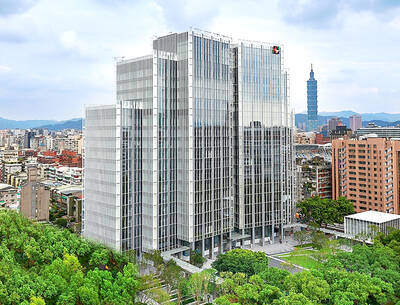Chunghwa Telecom Co (中華電信), the nation's top phone company, said yesterday that it was in talks with Viettel Corp to buy a stake in Vietnam's second-largest mobile operator as part of its efforts to seek growth opportunities overseas.
Tapping into the fast-growing and liberalizing Vietnamese market, Chunghwa Telecom said it had formed a US$30 million joint venture with Viettel to provide Internet data center services in Hanoi.
“This joint venture in Vietnam is the first step in executing our company’s growth strategy outside of Taiwan,” Chunghwa Telecom chairman Hochen Tan (賀陳旦) said in a press release yesterday.
The venture, Viettel-CHT Co Ltd, is the first overseas investment by Chunghwa Telecom and is scheduled to start operations next quarter, offering broadband leasing, Web hosting and disaster recovery services. Chunghwa Telecom holds a 30 percent stake in venture, while Viettel controls the remaining 70 percent.
Hochen said yesterday on the sidelines of a press briefing that Chunghwa Telecom was “also in talks with Viettel about cooperation in different areas.”
“We also hope to invest in [Viettel],” he said. “We hope to tap into the fast-growing market with our local partners rather than by ourselves.”
The Vietnamese government is planning to sell its shareholdings in local state-run telecom companies, including Viettel, and the nation’s biggest mobile operator, Vietnam Posts and Telecommunications Group, but has delayed execution several times, Hochen said.
Chunghwa Telecom is closely monitoring Vietnam Posts’ planned share offering as it is interested in buying a stake, he said.
Vietnam’s mobile penetration rate is expected to rise at an annual pace of 23 percent from this year through 2013, Viettel said on its Web site, citing an unspecified research house’s forecast.
Vietnam, which has a population of 85 million, has a mobile penetration rate of only 40 percent, Chunghwa Telecom said.
Viettel has obtained trial licenses to provide next-generation Worldwide Interoperability for Microwave Access (WiMAX) services in the country, and Chunghwa Telecom is in talks with the company to help it build a WiMAX network, Viettel-CHT president Yu Neng-ming (尤能明) said.
Yu, a deputy managing director at Chunghwa Telecom’s IDC department, was appointed to the post of president, as the Taiwanese firm holds two out of the five board seats in the joint venture and is responsible for appointing the president. Viettel will appoint the venture’s chairman.
Hochen said the venture aimed to break even within two, or three years after operation. If the cooperation with Viettel goes smoothly, he said Chunghwa Telecom planned to expand the partnership to provide mobile services in Cambodia. Viettel already provides mobile services there, he said.
Last week, Chunghwa Telecom projected that net income would drop about 10 percent to NT$43.6 billion (US$1.43 billion) this year, compared with NT$48.25 billion last year.

GROWING CONCERN: Some senior Trump administration officials opposed the UAE expansion over fears that another TSMC project could jeopardize its US investment Taiwan Semiconductor Manufacturing Co (TSMC, 台積電) is evaluating building an advanced production facility in the United Arab Emirates (UAE) and has discussed the possibility with officials in US President Donald Trump’s administration, people familiar with the matter said, in a potentially major bet on the Middle East that would only come to fruition with Washington’s approval. The company has had multiple meetings in the past few months with US Special Envoy to the Middle East Steve Witkoff and officials from MGX, an influential investment vehicle overseen by the UAE president’s brother, the people said. The conversations are a continuation of talks that

Alchip Technologies Ltd (世芯), an application-specific integrated circuit (ASIC) designer specializing in artificial-intelligence (AI) chips, yesterday said that small-volume production of 3-nanometer (nm) chips for a key customer is on track to start by the end of this year, dismissing speculation about delays in producing advanced chips. As Alchip is transitioning from 7-nanometer and 5-nanometer process technology to 3 nanometers, investors and shareholders have been closely monitoring whether the company is navigating through such transition smoothly. “We are proceeding well in [building] this generation [of chips]. It appears to me that no revision will be required. We have achieved success in designing

UNCERTAINTY: Investors remain worried that trade negotiations with Washington could go poorly, given Trump’s inconsistency on tariffs in his second term, experts said The consumer confidence index this month fell for a ninth consecutive month to its lowest level in 13 months, as global trade uncertainties and tariff risks cloud Taiwan’s economic outlook, a survey released yesterday by National Central University found. The biggest decline came from the timing for stock investments, which plunged 11.82 points to 26.82, underscoring bleak investor confidence, it said. “Although the TAIEX reclaimed the 21,000-point mark after the US and China agreed to bury the hatchet for 90 days, investors remain worried that the situation would turn sour later,” said Dachrahn Wu (吳大任), director of the university’s Research Center for

PROJECTION: KGI Financial said that based on its foreign exchange exposure, a NT$0.1 increase in the New Taiwan dollar would negatively impact it by about NT$1.7 billion KGI Financial Holding Co (凱基金控) yesterday said its life insurance arm has increased hedging and adopted other moves to curb the impact of the local currency’s appreciation on its profitability. “It is difficult to accurately depict the hedging costs, which might vary from 7 percent to 40 percent in a single day,” KGI Life Insurance Co (凱基人壽) told an investors’ conference in Taipei. KGI Life, which underpinned 66 percent of the group’s total net income last year, has elevated hedging to 55 to 60 percent, while using a basket of currencies to manage currency volatility, the insurer said. As different